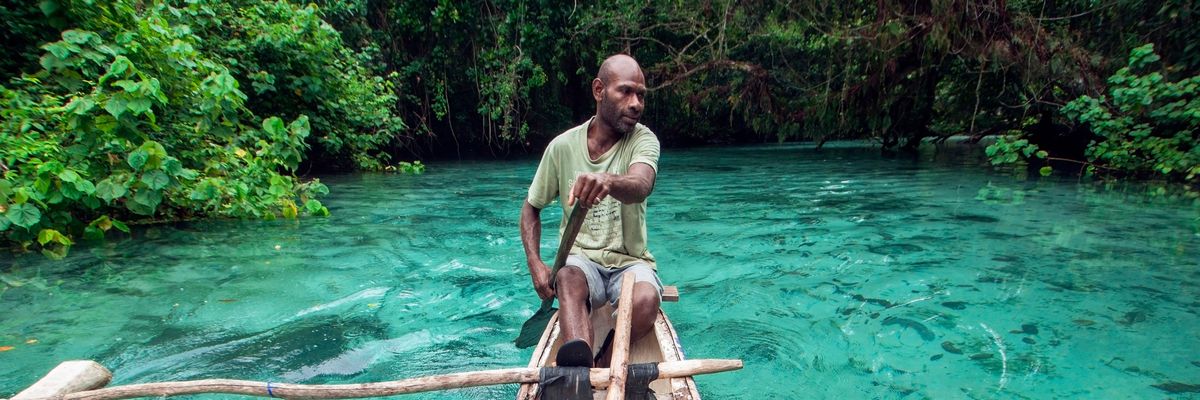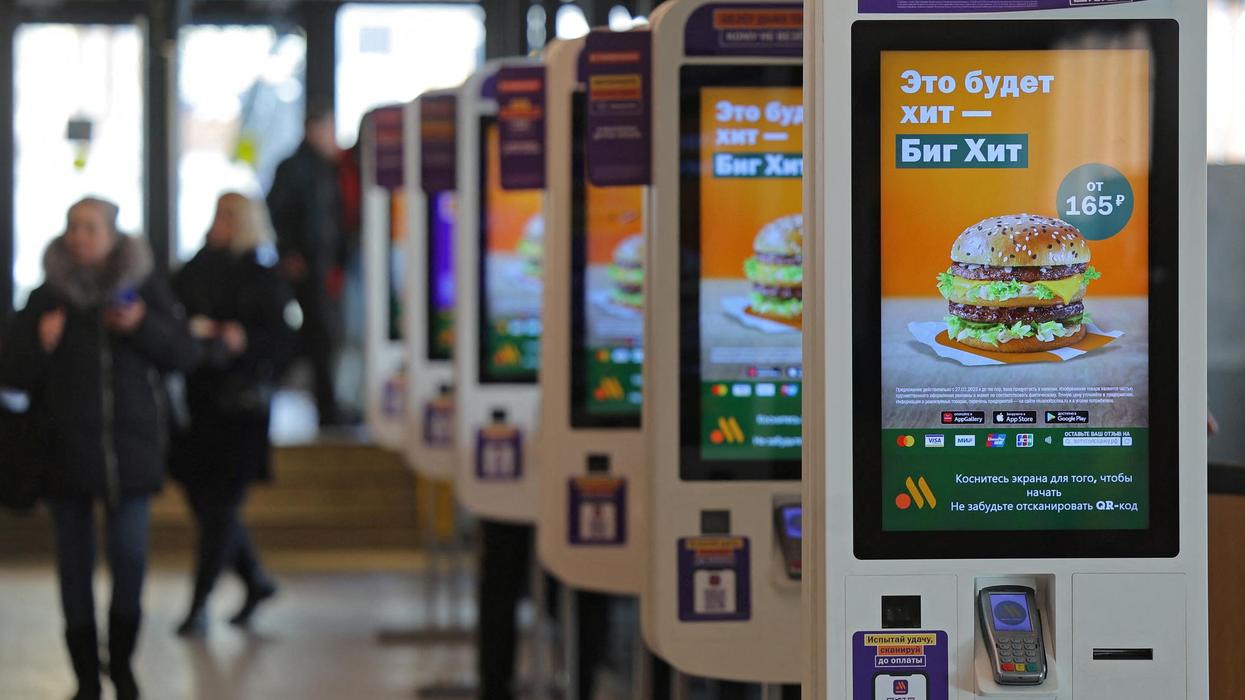Politics in the Pacific Island nation of Vanuatu, located east of Australia, can be turbulent, with constant chessboard moves among parliamentary members with fluid party ties and frequent no confidence motions. But the strategic importance of the country to the U.S.-Australia alliance and China was a factor in the recent abrupt expulsion of the 10-month-old government led by then-Prime Minister Alatoi Ishmael Kalsakau.
In late August, Kalsakau lost a vote of no confidence against him by opposition leader Bob Loughman, who has for years backed China’s increasing influence in the Pacific nation. After disputes about the vote result, Loughman was appointed deputy prime minister in the new government under Prime Minister Sato Kilman, who took the helm on September 4. The sudden change in administration came a year after Loughman, a former prime minister, ceded his leadership after parliament was dissolved and he avoided a vote of no confidence against himself. The snap election which followed in October last year saw Kalsakau take the top job.
While the government is contending with domestic issues, such as a struggling economy, unemployment and contentious debates about the minimum wage, the main trigger for the latest political crisis was a security agreement with Australia signed by Kalsakau in December last year and due for parliamentary ratification. Vanuatu is one of many Pacific Island states that do not have their own armed forces and depend on military assistance from bilateral partners when needed.
For Loughman, the unratified bilateral pact, which would increase military and law enforcement, but also disaster and humanitarian relief and cybersecurity co-operation with Australia, could have risked Vanuatu’s relations with China. New Prime Minister Kilman claimed there had been a lack of consultation about the pact with ministers. Yet it was not an unknown or hasty development. Discussions about the agreement had been occurring between Australia and successive governments in Vanuatu for five years.
“Australia respects Vanuatu’s sovereign decision-making processes, including in relation to the bilateral security agreement that began in 2018 and was signed in 2022,” Australia’s Department of Foreign Affairs responded. The signing of the pact followed deep concerns by the U.S. and its allies about China’s security agreement with the Solomon Islands that was announced last April.
Soon after taking office, Kilman vehemently denied any geopolitical reasons for the crisis, claiming that the country had always and will continue to be “neutral” in big power contests. “We are not pro-West and we are not pro-Chinese,” he said. “We adopt a non-aligned policy.” Indeed, Vanuatu has a spectrum of development and aid relations with Australia, New Zealand, China and Japan, and its mobile paramilitary police force has also received support from Australia, New Zealand and China.
Yet, in being non-aligned, Vanuatu was swift in 2016 to declare its support for China’s territorial claim to islands in the South China Sea that are at the center of a heated sovereignty dispute and military provocation between the East Asian powerhouse and several of its Southeast Asian neighbors. And, for U.S. commentators, a high-risk site for potential conflict.
Despite the Pacific nation remaining outside of any direct military involvement in U.S.-China geopolitics, it has, under some political leaders, become increasingly receptive to China’s political influence. Last year, Loughman signed an array of agreements with China on technology, energy, infrastructure, health and economic development and, the year before, a multi-million dollar bilateral grant agreement on economic and technical cooperation.
In 2018, Chinese funding and construction of a massive port development in the provincial, but geographically strategic, coastal town of Luganville, attracted international attention. Security experts speculated that, due to its exceptional size, it could potentially be used as a warship base.
In contrast, Kalsakau has been publicly critical of China’s penetration of Vanuatu’s political life for several years. In 2018, he told the Australian media there wasn’t enough internal scrutiny of the massive inflow of Chinese loans, businesses and influence and “he feared China was pursuing its strategic interests by showering Vanuatu with largesse and deepening its influence in the country.”
Last year, Vanuatu’s public debt totalled 40 percent of GDP. China, its largest foreign creditor, is owed more than one third of its total external debt, which totals about $314 million and constitutes 32 percent of GDP.
French President Emmanuel Macron expressed additional concerns during a visit to Vanuatu in July. “There is in the Indo-Pacific, and particularly in Oceania, new imperialism appearing and a power logic that is threatening the sovereignty of several states; the smallest, often the most fragile,”Macron said.
Vanuatu, like many Pacific Island states, is a Westminster-style parliamentary democracy. But its statecraft is heavily influenced by norms of Melanesian customary governance that have prevailed for centuries. The power of traditional clan leaders in island societies is determined by their ability to acquire and distribute wealth and resources to their constituencies, rather than adherence to an ideology or party-driven policies. While political cultures in the Pacific are evolving, this legacy makes politicians particularly vulnerable to China’s strategies of economic largesse and coercion which entails reciprocity.
During his recent tenure as prime minister, Kalsakau attempted to broaden his country’s international relations, bringing in other development partners, such as Saudi Arabia, and working for wide-ranging global support of its legal probe of climate justice at the UN General Assembly. He also took steps to reform Vanuatu’s controversial citizenship-selling program in response to security concerns by the EU which has had a visa waiver arrangement with the nation.
There is no doubt that Pacific Island leaders are opposed to being parties in the regional U.S.-China rivalry and are reasserting their rights of sovereignty above all else. At a meeting in August of the Melanesian Spearhead Group, an inter-governmental organization of southwest Pacific Island states, leaders emphasized their refusal to take sides in geopolitical battles.
But regional analysts also point to Vanuatu, the Solomon Islands and Samoa being located on a key geographical axis, which is crucial to maritime access into and across the Pacific Ocean by the U.S., Australia and China.
Yet, despite the political upheaval, the new prime minister has not dismissed closer security ties with Australia; only that the pending agreement won’t be ratified in its current form. “My view would be to revisit the agreement with both sides, the Australians and the Vanuatu government, and see if there’s any sticking points and then address that,” Kilman was quoted on September 4.
Some Australian strategists support Vanuatu’s greater scrutiny of the pact, claiming that it is a sign of democratic processes at work. But, in terms of a timeline, it is unlikely to be an immediate priority for the new leadership.
















